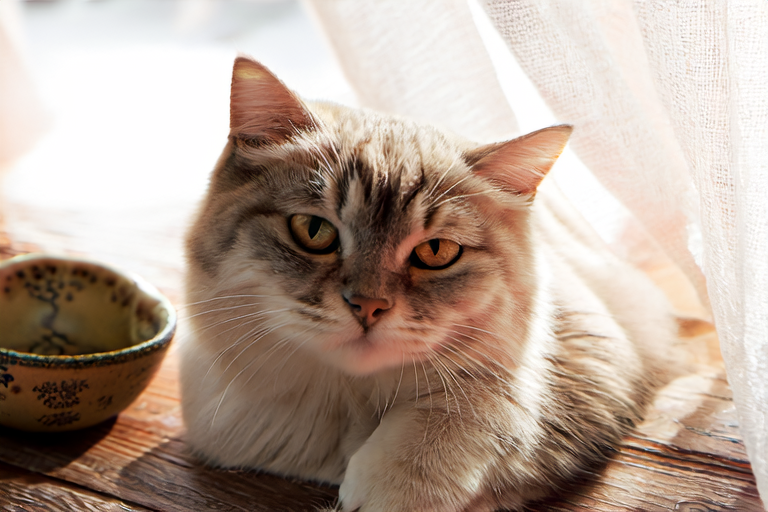Adorable Scottish Folds: The Ultimate Guide to Caring for Your New Pet
Welcome to the world of Scottish Folds! These charming and affectionate cats have captured the hearts of many pet owners. This guide will provide you with all the information you need to care for your new furry friend.
Origins
The Scottish Fold is a breed that originated in Scotland in the 1960s. It was first discovered when a barn cat named Susie, who had a natural mutation that caused her ears to fold forward, was bred with a local tomcat. The resulting kittens inherited this unique trait, and the Scottish Fold breed was born. Today, these cats are popular pets around the world.
Appearance
Scottish Folds are known for their distinctive folded ears, which give them a sweet and expressive look. Their ears can be folded forward or sideways, and they come in various colors and patterns. They have round faces, large eyes, and short legs. Their coats can be either short or long, and both varieties are soft and plush to the touch.
Personality
Scottish Folds are known for their gentle and affectionate nature. They are highly social animals that enjoy spending time with their owners and other pets. They are also intelligent and curious, making them great companions for people who enjoy interactive play. Despite their playful nature, they are generally calm and adaptable, making them suitable for a variety of living situations.
Health Issues
While Scottish Folds are generally healthy cats, they are prone to certain health issues due to their genetic makeup. One of the most common issues is osteochondrodysplasia, a condition that affects the development of bones and cartilage. This can lead to joint problems, including arthritis, and may limit the cat’s mobility. Other health issues include heart disease and respiratory problems. Regular veterinary check-ups and proper care can help prevent and manage these conditions.
Dietary Needs
A balanced diet is essential for the health and well-being of your Scottish Fold. Cats require a diet that is high in protein and low in carbohydrates. Look for foods that contain real meat as the primary ingredient and avoid those that contain fillers or artificial preservatives. You can also supplement their diet with fresh fruits and vegetables, but make sure to consult with your veterinarian before introducing any new foods. Providing clean and fresh water at all times is also important.
Daily Care
Hair Care
Scottish Folds have soft and plush coats that require regular grooming to keep them healthy and shiny. Short-haired varieties should be brushed once or twice a week, while long-haired varieties may need daily brushing to prevent matting. Use a soft-bristled brush or a rubber grooming glove to remove loose hair and distribute natural oils throughout the coat. Bathing should only be done when necessary, as over-bathing can strip the coat of its natural oils.
Nail Trimming
Regular nail trimming is important to maintain your Scottish Fold’s overall health and hygiene. Overgrown nails can cause discomfort and may even lead to injury. Use a pair of sharp, curved nail clippers designed for cats, and trim only the tip of each nail. Be careful not to cut into the quick, which contains blood vessels and nerves. If you are unsure about how to trim your cat’s nails, consult with your veterinarian or a professional groomer.
Living Environment
Scottish Folds are adaptable and can thrive in a variety of living environments. However, they do best in homes that offer plenty of space for them to explore and play. Provide them with a comfortable bed, scratching posts, and toys to keep them entertained. They also enjoy spending time with their owners, so make sure to allocate time for play and interaction each day. If you live in a multi-pet household, introduce your Scottish Fold to other animals gradually and under supervision to ensure a smooth transition.
Training Methods
Scottish Folds are intelligent and eager to please, making them relatively easy to train. Positive reinforcement techniques, such as treats and praise, work best. Start by teaching basic commands, such as “sit” and “stay,” and gradually move on to more advanced tricks. Consistency and patience are key, so be prepared to spend time training your cat every day. Reward good behavior and ignore bad behavior to reinforce positive habits.
Selecting a Veterinarian
Choosing the right veterinarian is an important decision for the health and well-being of your Scottish Fold. Look for a veterinarian who has experience working with cats and is familiar with the specific needs of the Scottish Fold breed. Consider factors such as location, availability, and cost when selecting a veterinarian. It is also a good idea to ask for recommendations from friends, family, or online communities. Once you have selected a veterinarian, schedule regular check-ups and vaccinations to ensure your cat remains healthy.
